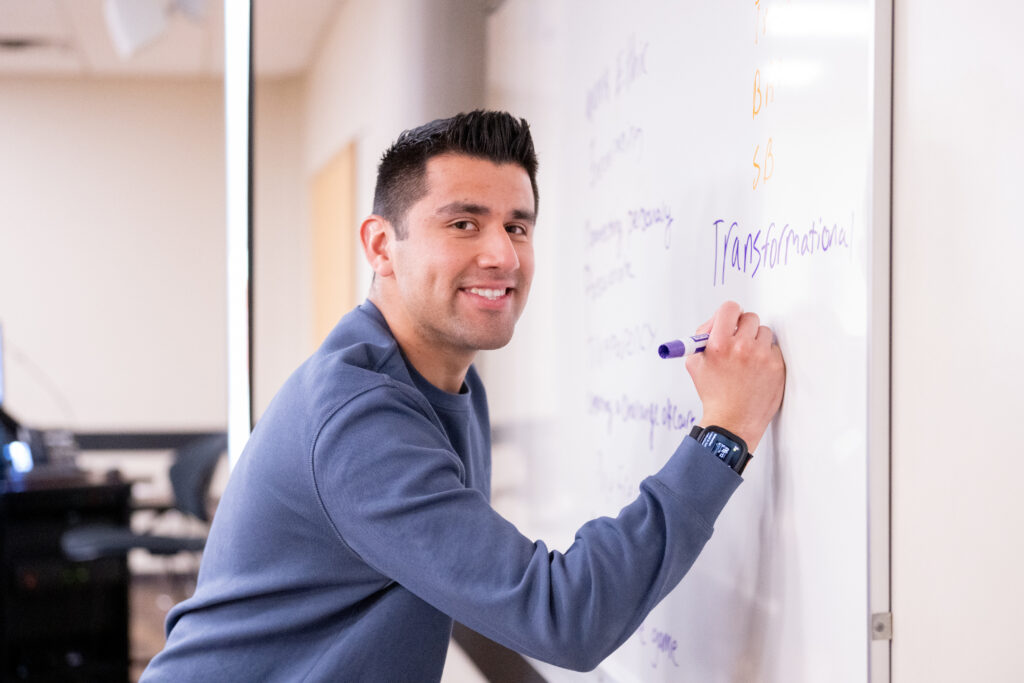Without question, large-language-model artificial intelligence (like OpenAi’s ChatGPT) is transforming the way we work and live. In an era when many are already questioning the value of a liberal arts education, is AI making it a thing of the past?
The answer may surprise you. Here are three reasons why the age of artificial intelligence demands a robust liberal arts education:
1. AI is only as good as its inputs (and sometimes much worse)
AI can analyze data and generate responses, but it is only as good as its inputs. Even the best AI has limits – it can only (legally) analyze public source material or licensed resources. High-quality resources like copyrighted works and peer-reviewed research are usually out of its reach. As many users have discovered, AI occasionally generates false responses (hallucination). And what is worse, sometimes even makes up sources to support its claims. To make the best use of AI, the marketplace needs well-read men and women who know how to source claims, understand arguments, and make wise judgements grounded in reality.
2. AI cannot reason rightly
Because of its remarkably natural language, we can be tempted to think that AI is capable of reason – to form judgments by considering various options and choosing the wisest answer. But understanding the rules of logic does not qualify AI to make judgements – especially when it comes to moral or ethical reasoning. This kind of reasoning is a distinctly human function. It requires evaluating a set of (often complex) circumstances though a coherent understanding of reality—an understanding that makes sense of existence, nature, knowledge, and purpose. This understanding ultimately comes through a heart transformed by the Holy Spirit, submitted to the Lordship of Christ, and oriented to God’s truth as it is revealed in Scripture and displayed in the created order. That’s why a liberal arts education, grounded in truth, is essential for the workplace and world. Our homes, churches, communities, and workplaces need leaders who understand competing truth claims and can point to what is true, good, and beautiful.
3. AI can serve or enslave
Technology is not neutral. It can serve or it can enslave. At present, it is often easier to see the benefits of AI than its disadvantages – but there are always tradeoffs. AI will help medical professionals discover disease earlier and propose more effective treatment. But AI will also enable bad actors to manipulate and defraud the vulnerable. Some will use AI to enhance knowledge and grow in learning and wisdom. Others will use it as a substitute for learning and pass off its results as their own work. The marketplace needs individuals who can make wise use of technology – to use AI to help human beings be more fully what God has designed them to be, rather than enslaving them to their disordered desires. Christ-centered liberal arts education forms students to become who they are in Christ. It aims to help students, by God’s grace, order their affections rightly – training their moral imagination and forming habits of heart and mind. It does this by reflecting on Scripture and profound thinkers across the centuries who have wrestled with the most important questions of life.
Artificial intelligence does not spell the end of liberal arts education; it emphasizes its critical importance. Technologies are instruments and their impact on the world depends on who designs them and whose hands they are in. We need liberal arts education grounded in pursuit of Truth to ensure that technologies help us become more fully human – now more than ever.
Interested in learning more about a transformative liberal arts education? Northwestern’s Classical Christian Honors College provides a cohort-based, seminar-style secondary major in the great books and ideas that complements a student’s primary area of study. The unique program satisfies most of a student’s core curriculum requirements, allowing students to complete two majors without adding time or cost to their education.


